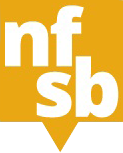- Our Centres
- Academics
- I want to finish high school
- I need prerequisites for a trade program
- I need prerequisites for CEGEP
- I want to learn French! Francisation
- I want to learn English
- I want to learn skills for the workforce
- I’m an adult learner with special needs
- I have work experience! Does it count?
- I want equivalency testing
- What do I need to register for academic courses?
- Trade Programs
- Quick Trainings
- We’re Here to Help!
- Student Services
- Calendars
- Free Daily Shuttle Bus
- Francisation – FREE French Courses
- Documents you’ll need to register for academics
- RAC – Your Work Experience May Count!
- Financial Assistance
- Is a Trade Right for Your Teen?
- Adult Learners with Special Needs
- Student for a Day
- Problem at your Centre?
- Testing Services
- International Students
